
Panel: A Brave New Future featuring Ian Lowe, Scott Ludlam and Alex Kelly (Clunes Booktown Festival)
-
Long Half-life
Ian Lowe

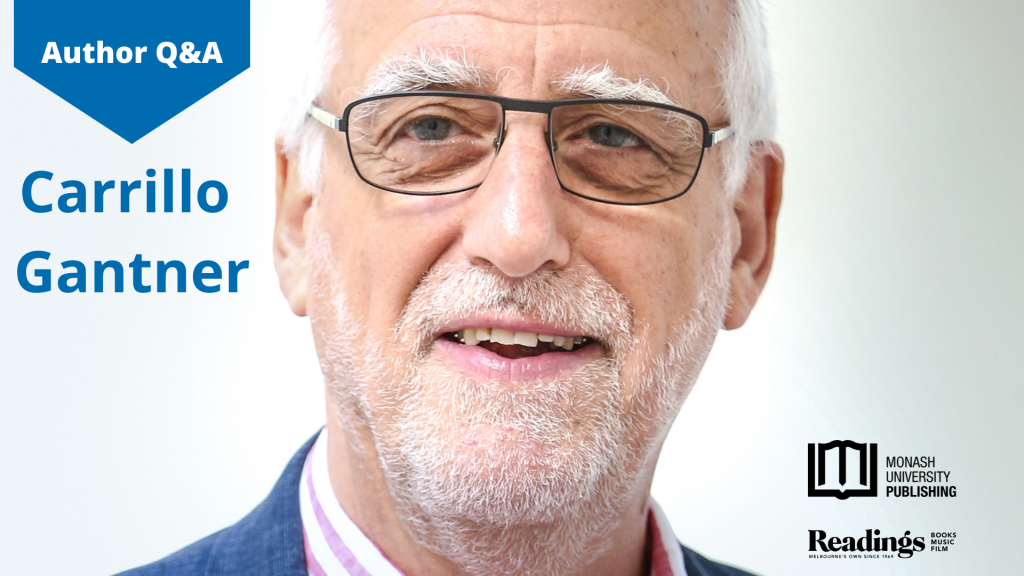
Please note: this event is being held online.
Join us to hear Carrillo Gantner in conversation with Linda Jaivin, author of The Shortest History of China.
Gantner’s Dismal Diplomacy, Disposable Sovereignty: Our Problem with China & America, is an explanation of how we can repair the recent damage done to the Australian/US/China.
This book describes the current unhappy situation and, based on Gantner’s forty years of work in cultural exchange with China, offers some modest suggestions on improving bilateral relations.
This event is free to attend but bookings are essential.
This event commences online at 6.30pm using the video conferencing platform Zoom.
To book for this event, you must provide your email address.
To ensure the Zoom event stays private, participants will be emailed a unique zoom link and a password 30 minutes before the event begins on the day of the event. Please check your email.
All bookings for online events will be closed one hour before the event begins.
You do not need to have a Zoom account to join a meeting, but mobile users will need to download the Zoom app for their device. Desktop and laptop users can either download the Zoom application or access the event via their web browser.
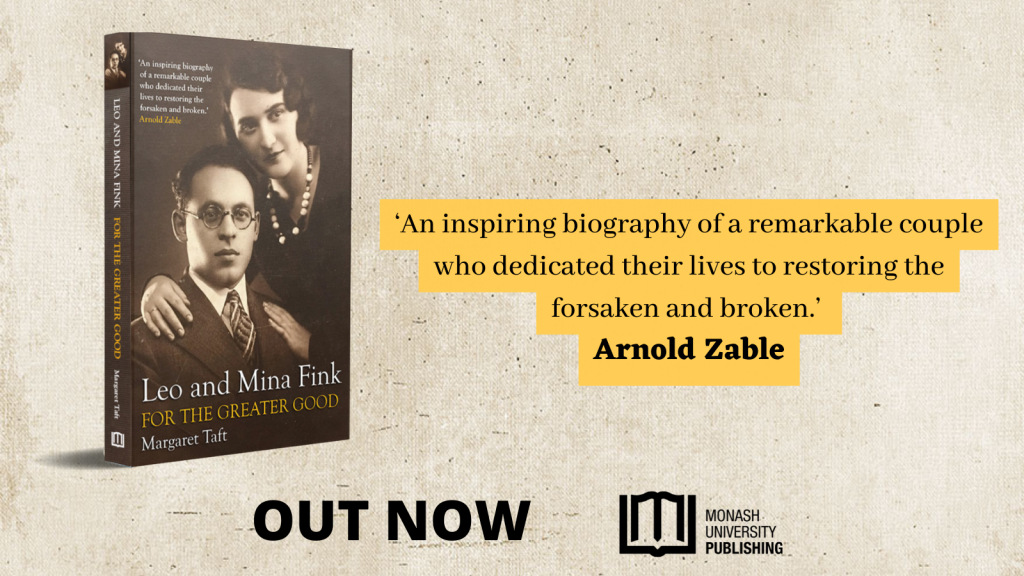
The Australian Centre for Jewish Civilisation and Monash University Publishing are delighted to invite you to the launch of Leo and Mina Fink: For the Greater Good by Margaret Taft
To be launched by Michael Gawenda AM
‘An inspiring biography of a remarkable couple who dedicated their lives to restoring the forsaken and broken.’ Arnold Zable
‘This is a fascinating and inspirational Australian story.’ Books+Publishing
 Dr Margaret Taft is a research associate at the Australian Centre for Jewish Civilisation at Monash University. For the past 12 years her research has focused on the reconstruction of Jewish immigrant life in pre-war and post-war 20th-century Australia. Her particular interest lies with the Yiddish speakers from Eastern Europe whose personal agency, leadership and cultural identity transformed what had been a predominantly Anglo Jewish community.
Dr Margaret Taft is a research associate at the Australian Centre for Jewish Civilisation at Monash University. For the past 12 years her research has focused on the reconstruction of Jewish immigrant life in pre-war and post-war 20th-century Australia. Her particular interest lies with the Yiddish speakers from Eastern Europe whose personal agency, leadership and cultural identity transformed what had been a predominantly Anglo Jewish community.
Margaret is an experienced author, teacher, lecturer and public speaker. Her publications include From Victim to Survivor: The Emergence and Development of the Holocaust Witness 1941–1949 and A Second Chance: The Making of Yiddish Melbourne, which was shortlisted for the 2019 Victorian Community History Awards. The daughter of Holocaust survivors, her early years were spent in the culturally rich post-war immigrant community of Northcote.
 Michael Gawenda AM is one of Australia’s best-known journalists and authors. In a journalism career spanning four decades, Michael has been a political reporter, a foreign correspondent based in London and in Washington, a columnist, a feature writer, a senior editor at Time Magazine and the Editor and Editor in Chief of The Age in Melbourne from 1997 to 2004.
Michael Gawenda AM is one of Australia’s best-known journalists and authors. In a journalism career spanning four decades, Michael has been a political reporter, a foreign correspondent based in London and in Washington, a columnist, a feature writer, a senior editor at Time Magazine and the Editor and Editor in Chief of The Age in Melbourne from 1997 to 2004.
He has won numerous journalism awards including three Walkley awards, the Australian equivalent of the American Pulitzer prizes. Michael Gawenda was the inaugural Director of the University of Melbourne’s Centre for Advancing Journalism and is now an honorary research fellow at the Centre.
His most recent book is The Powerbroker: Mark Leibler, an Australian Jewish Life.

Events of the last year have brought a renewed and urgent focus on the experiences of women seeking redress after experiencing harassment or assault. With exhausting regularity, the perpetrator is protected at the expense of the victim, with the justice system and corporate culture accused of exacerbating trauma. In their books System Failure and Power and Consent, Michael Bradley and Rachel Doyle draw on their legal experience to highlight the flaws in our current laws. Advocate and survivor Saxon Mullins was instrumental in changing the definition of consent in NSW.

As our Foreign Minister from 1988 – 1996 and President of the Brusselsbased International Crisis Group thereafter, After consistent reform at a Federal level across the Hawke, Keating, Howard and Gillard Governments, policy ambition seems to have stalled. In his book A Decade of
Drift, Martin Parkinson recounts serving six prime ministers as an integral part of key policy development at the highest levels. As CEO of the Grattan Institute for eleven years, John Daley has published widely across key policy areas, his writings underpinned by themes of prioritising government initiatives and the limits to government effectiveness. They argue Australia should demand more courage and commitment from their political leaders.
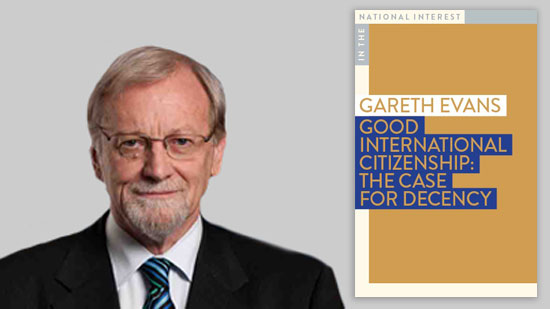
As our Foreign Minister from 1988 – 1996 and President of the Brusselsbased International Crisis Group thereafter, Gareth Evans is uniquely qualified to discuss the importance of good international citizenship in our interconnected world. Outlining four key tenets to assess a country’s record – foreign aid generosity, reaction to conflicts and their consequences, response to human rights violations, and contribution to global crises – he finds Australia wanting on all of them. His essay is a call for change and decency in the way we engage with the world.
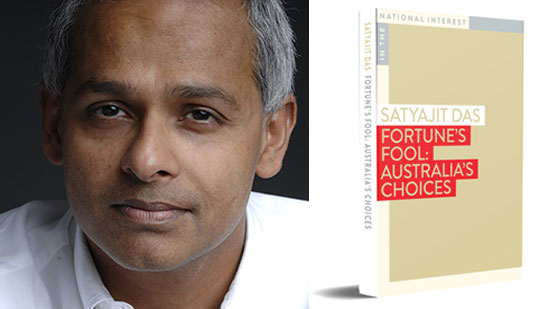
Over the last two decades, Australia has economically become a Southern Province of China. But now the trade relationship is fracturing. Australia’s military relationship with the US, such as the new AUKUS alliance, has raised Chinese ire.
The tensions between geography, economic interests and history is longstanding. Australia struggles to reconcile its location and economic self-interest which suggest an affinity with Asia and history and culture which identify with America and Europe. Whether the nation can straddle this barbed wire fence will shape our prosperity and security future.
atyajit Das is a financier, named in 2014 by Bloomberg as among the 50 most influential people in financial markets. He has held senior positions in banks and industry and now works as a consultant to investors and corporations globally.
He is also the author of Traders, Guns & Money (2006) , Extreme Money (2011) and A Banquet of Consequences (2015 and 2021) (published in North America as Age of Stagnation). He is also the author (with Jade Novakovic) of In Search of the Pangolin: The Accidental Eco-Tourist (2006). His latest book is Fortune’s Fool: Australian Choice (March 2022).
He appeared in Charles Ferguson’s 2010 Oscar-winning documentary Inside Job. He has spoken at the Sydney and Melbourne Writers Festival, Adelaide Festival of Ideas and Sydney’s Festival of Dangerous Ideas.
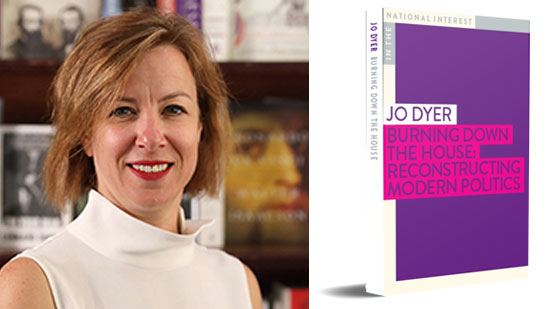
Jo Dyer made headlines last year after advocating for her friend Kate, who accused former attorney-general Christian Porter of raping her during their high school years. Porter strenuously denies the allegations.
Dyer’s pressured the government to address her late friends’ allegations and hold a proper inquiry. Disheartened with the government’s poor response and years of inadequate governance, she’s decided to fight from the inside, running for an Independent candidate of Boothby as part of the ‘Voices Of’ movement.
Crikey’s Amber Schultz will be joined by the arts powerhouse and independent candidate to discuss her new book Burning Down the House – the story of how our political system went awry, ranging from Morrison government’s many embarrassing moments and rapid moral decline to Labor’s inability to act.
Dyer is an advocate for compassionate, humane and moral leadership, canvassing the rise of Independents and the importance of responsible and honest candidates.

The Morrison government’s moral decline happened first slowly and then all at once. We suffered through ‘Sports rorts’ and ‘Watergate’ and an MIA PM, before the dissembling response to allegations of sexual abuse at the very heart of federal politics threw into stark relief the cynicism and moral bankruptcy of a government ready to abandon any semblance of integrity to save its own skin. But at a time when the country is crying out for leadership, the Labor Party seems paralysed, so terrified it may lose votes from its opponent’s perennial wedging that, on key moral questions, it has failed to make the case to win them.
Burning Down the House tells the story of how our political system went awry. Debunking the notion that we’ve ever had a two-party system, it examines how with a recent dance card that has gone way beyond Labor and Liberal to encompass the Nationals, Greens, Centre Alliance and a whole host of RWNJs Australia has now arrived at a place where a group of the most unlikely politicians contemplated the sort of Australia they wanted responsible, humane, moral and concluded that was not the Australia reflected in our current toxic politics. Into the breach has stepped a range of independents beholden to no-one but themselves and their electorates, ordinary Australians determined to burn it all down and build something new.

The Morrison government’s moral decline happened first slowly and then all at once. We suffered through ‘Sports rorts’ and ‘Watergate’ and an MIA PM, before the dissembling response to allegations of sexual abuse at the very heart of federal politics threw into stark relief the cynicism and moral bankruptcy of a government ready to abandon any semblance of integrity to save its own skin. But at a time when the country is crying out for leadership, the Labor Party seems paralysed, so terrified it may lose votes from its opponent’s perennial wedging that, on key moral questions, it has failed to make the case to win them.
Burning Down the House tells the story of how our political system went awry. Debunking the notion that we’ve ever had a two-party system, it examines how with a recent dance card that has gone way beyond Labor and Liberal to encompass the Nationals, Greens, Centre Alliance and a whole host of RWNJs Australia has now arrived at a place where a group of the most unlikely politicians contemplated the sort of Australia they wanted responsible, humane, moral and concluded that was not the Australia reflected in our current toxic politics. Into the breach has stepped a range of independents beholden to no-one but themselves and their electorates, ordinary Australians determined to burn it all down and build something new.